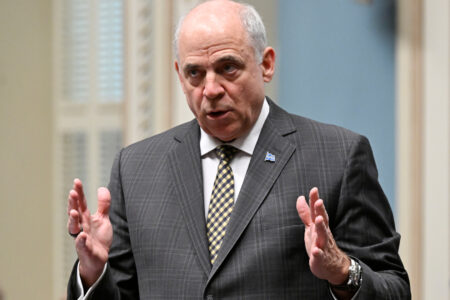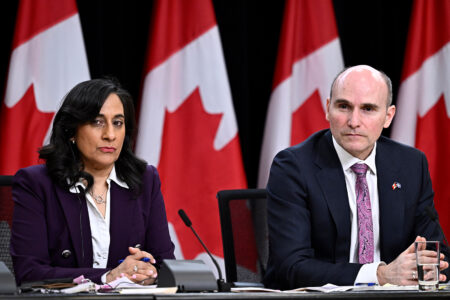
The American political experiment runs on hope, but American politics hasn’t had a lot of that lately. That’s why what’s been happening in American cities and metropolitan areas is refreshingly exciting. In New York, the city ran an international competition to attract three new applied sciences campuses in an effort to diversify its economy after the recession. In South Boston, an “innovation district” in a former industrial area has now created 4,000 jobs and 200 new businesses as a result of a concerted effort by the public and private sectors. Miami has worked hard to establish a strategic trading relationship with São Paolo; it now attracts half a million Brazilian visitors a year and trades $15 billion worth of goods with this partner city.
Progress in American cities is the subject of a new book, The Metropolitan Revolution: How Cities and Metros Are Fixing Our Broken Politics and Fragile Economy, by Bruce Katz and Jennifer Bradley of the Brookings Institution. Katz and Bradley offer a series of case examples of innovative metropolitan projects, from Houston to Detroit to Northeast Ohio to Miami, as “a repudiation of the current national myth that America lacks leadership.”
American metropolitan innovation is not universal — politics as usual (and worse) still abounds in US cities — nor is it new. But there appears to be more of it today, in part due to external economic and social forces, and in part because austerity and inaction at the other levels of government are forcing cities to find new solutions on their own.
The trend Katz and Bradley point to is not a common set of policies — they decry, for instance, the notion that new stadiums and convention centres can be universally used as economic development tools. The metropolitan revolution, for them, is more of a way of solving problems: a more collaborative, pragmatic, nonpartisan and can-do form of politics that stands in stark contrast to polarized, gridlocked Washington. It is no panacea for America’s economy or its political life, but it offers a glimmer of optimism, and not only for Americans.
Canadians aren’t usually keen to import American political ideas — or at least to admit to doing so. But there are two reasons why importing what Katz and Bradley call the metropolitan revolution — or at least its spirit — is a good idea. The first is political. The second is economic.
The idea that city leaders could lead the charge in improving Canadian political culture seems almost comical. Our biggest cities’ mayors are known worldwide for a few things. Guiding us toward a better politics isn’t one of them.
But peel away current headlines and think of the form of city politics itself. City politics can generate less partisan, more constructive public conversations. Most cities lack traditional party structures and the strict discipline and endless talking points that come with them. City council debates may be raucous and chaotic, but they lack the adversarial theatrics of our Question Period (perhaps because there are fewer people watching) and allow more coalition building across traditional party lines. The autonomy and opportunity for impact that city councillors enjoy also give municipal politics an advantage when it comes to attracting talent, particularly within younger generations for whom autonomy, collaboration and the opportunity for impact are often more important than pay or prestige.
City leaders may be better positioned to rebuild trust in government and politics than other levels of government, because they can deliver improvements and innovations in how government works, faster and in a way that is more visible to the public. The relative transparency of municipal systems (compare the openness of city budget processes with that of federal or provincial budgets, for instance) also makes it harder for entrenched interests to resist change. The “higher” levels of government take longer to show results, and so often revert to promoting their accomplishments not through concrete outcomes but through the kind of one-sided chest-pounding that fuels public distrust in the first place.
Metropolitan politics is well positioned to lead the change toward greater collaboration and transparency
Metropolitan politics is well positioned to lead the change because its form is most compatible with where the broader economy is going — toward greater collaboration, greater transparency and greater network-based interdependence.
The economic arguments for a Canadian metropolitan revolution are also strong. Despite over a decade of federal policy focused on boosting productivity and innovation, Canadian firms continue to lag behind global leaders. Our economy remains too dependent on unsustainable resource extraction, too vulnerable to swings in commodity prices. In a recent example, the fall in potash prices triggered by the collapse of a Russian cartel was so dramatic that some economists say it could cut Saskatchewan’s economic growth rate in half. New approaches are needed.
Evidence shows that cities yield more productive, more innovative economic activity, in large part because they offer motivated, talented, entrepreneurial people working in close proximity to one another — and to sources of capital. Natural resources may be huge assets for Canada, but so are our cities. The Economist Intelligence Unit ranks Vancouver, Toronto and Calgary third, fourth and fifth in the world in quality of life. Perhaps a sharpened focus on metropolitan, innovation-driven economic growth can be part of the prescription for our sluggish economy. Mayors and city councillors can stretch traditional jurisdictional boundaries and start worrying more about how to create jobs and growth.
Globally, cities are where the growth will be. A recent study by McKinsey & Co., a global strategy consultancy, projected that 600 cities will account for 60 percent of global GDP growth until 2025. Canada desperately needs to diversify its trade portfolio. Broad trade agreements led by the federal government may be part of the answer, but the time frame for getting a deal done can be extremely long (see the Canada-EU negotiations). Cities can get started now by pursuing targeted trade partnerships with cities of cultural and economic compatibility. They can focus on doing deals, not ponderous legal frameworks.
You may think ascribing transformative potential to city politics is naive. And if you assume the status quo in how city politics is practised, you would be right. That is precisely why a revolution is required: to change the status quo. Here is a sketch of how that change might look.
First, the revolution should be primarily about getting things done, not asking for “more.” In recent decades, public debate around transforming the metropolitan role has focused on asking: more funding for cities, more powers for cities, greater status for cities — think of Paul Martin’s New Deal for Cities, gas tax funding and the campaign for the federal government to give cities one cent of the GST. These have, for the most part, been well-founded requests. Canadian cities have less power and fewer funding sources than the cities highlighted in Katz and Bradley’s book. In the long run, Canada’s largest cities should be granted more authority and revenue-raising tools.
But in the short and medium terms it would be better for city leaders to focus on working with what they have. Fiscal constraints limit the likelihood of new funding, while the recent underperformance (to put it mildly) of city politicians means that the public is unlikely to want to give mayors and councils new powers. The revolution is not about a unified lobbying agenda for municipalities. It is about thousands of ground-up, innovative, collaborative and constructive projects.
These projects cannot and should not be cookie-cutter urban prescriptions. They must be rooted in community-specific needs and opportunities. But there are a few broad goals to which they could aspire:
- To show that Canadian city governments can be leaders in innovation and in doing what works
- To help build positive buzz around things city government is involved in so that it is seen as something people will be attracted to rather than a form of politics as usual people want to avoid
- To constantly challenge the status quo and ask how we can do things better
- We need to be relentlessly optimistic about the potential of our cities, rather than dwelling constantly on massive infrastructure deficits, out-of-date transit systems or how far away we are from being “world class.” Businesses and the nonprofit community must be encouraged to see their activities through a city-building lens. Cities must build a metropolitan civil service that becomes the most collaborative, open, dynamic place to work of all levels of government and an urban political class that sees municipal electoral office as much more than a stepping stone to the “senior” levels of government.
Leading by doing means adopting a more expansive, imaginative definition of what it means to be a city leader. Jurisdictional boundaries should be stretched. Councillors must be not only champions for their constituencies but stewards of the city, requiring a more complex understanding of the city’s economy that encompasses not only local small businesses but trade relationships, exports and a view of where the broader economy is going. That means advocating an allocation of public dollars and public goods that benefits the city and region, not a zero-sum competition for local pet projects.
We need better forums for collaboration around metropolitan issues — places where elected officials from the three levels of government can come together with business and not-for-profit leadership to roll up their sleeves and creatively solve problems related to a particular metropolitan area. These working sessions must shun media posturing and be thoughtfully designed to create an environment where working across party lines is possible.
Should the municipality continue to be the central organizing concept for cities policy?
America offers some inspiring examples of mechanisms to get leaders from business and civil society more involved in city building. Code for America has helped enlist some of the brightest minds in IT and data analytics to help tackle the problems fac-ing American cities. City Year, another American program, has helped instill the notion of city building in youth by creating opportunities for 17-to-24-year olds to spend a service year helping urban communities combat the problem of high school dropouts.
Also worth considering is whether the municipality should continue to be the central organizing concept for “cities policy” at the provincial and federal levels of government. The interests of large metropolitan areas and small towns are very different, yet often they have advocated together, arguably leading to a focus on what they have in common jurisdictionally (waste water, policing, zoning), rather than on the broader social or economic themes on which their interests may be farther apart. Ontario and Toronto took a step toward a different approach by creating the City of Toronto Act, a separate piece of governance legislation for the province’s biggest city. That legislation coincided with Toronto’s withdrawal from the Association of Municipalities of Ontario, an umbrella association for Ontario municipal governments.
The good news about a ground-up movement for change is that it need not await the coming of some elusive charismatic leader. It can start with individual projects, individual leaders both inside and outside of elected office. Also good news is that the principles of the metropolitan revolution are pretty simple: they are really just an extension of the ethos of cities, combined with the best aspects of how our economy and society are evolving, and applied in a concerted, creative, public-interest-minded way to our cities’ biggest challenges.
We already see elements of this in Calgary’s popular, ideas-driven mayor, in Toronto’s creative, energetic civil society, in the steady progress Vancouver has made on public transit over the past several decades. We need more of these things, we need more people to pay attention to them, and we need more people to aspire to city building as a métier. It may be the most practical remedy for what ails our economy and our political life.
Photo: Shutterstock








